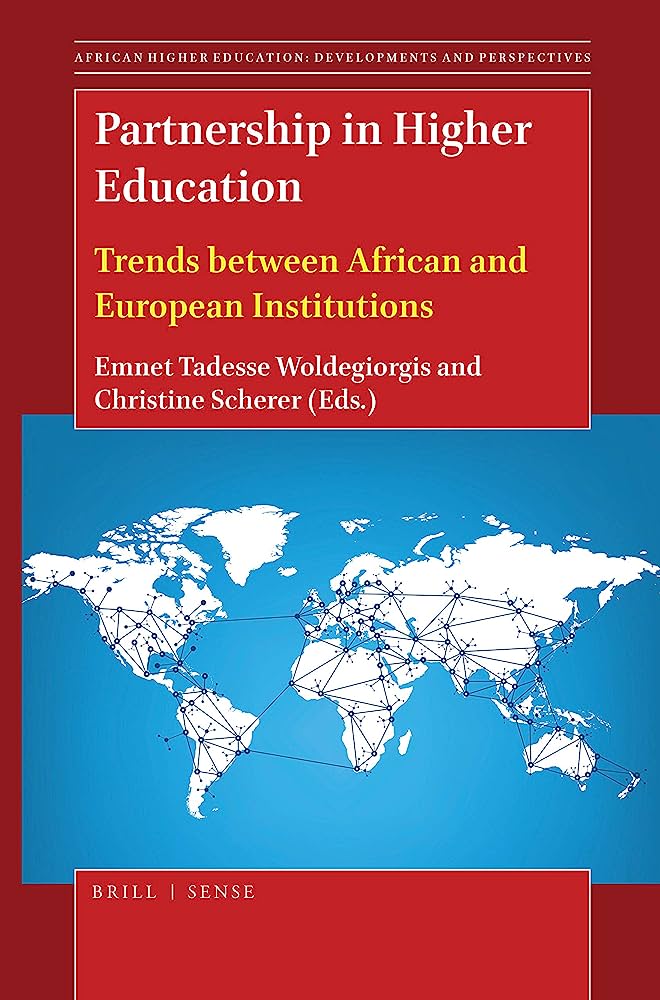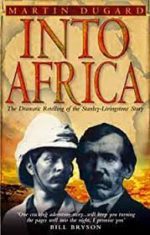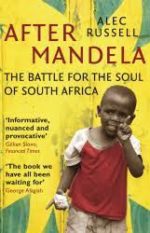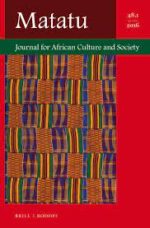Trends in institutional partnership in higher education have shown tremendous growth in the past three decades. These trends are manifested through the growing initiatives of joint programs that promote collaborative research, academic mobility, joint curriculum development and course delivery, joint bidding for development projects and bench marking. Partnerships in higher education have been used not only as an instrument for institutional development through a wide range of strategic alliances but also as an essential way of introducing new voices to the operations of the universities by initiating new paradigms that bring new perspectives and bear competitive advantage on the partners. As the trend of partnership in higher education grew, scholars in higher education studies have also engaged in conceptualising higher education partnership from academic perspectives, analysing trends and developing models of higher education collaborations.
Partnership in Higher Education -African Higher Education: Developments and Perspectives
KSh 6,000.00
Trends in institutional partnership in higher education have shown tremendous growth in the past three decades. These trends are manifested through the growing initiatives of joint programs that promote collaborative research, academic mobility, joint curriculum development and course delivery, joint bidding for development projects and bench marking. Partnerships in higher education have been used not only as an instrument for institutional development through a wide range of strategic alliances but also as an essential way of introducing new voices to the operations of the universities by initiating new paradigms that bring new perspectives and bear competitive advantage on the partners. As the trend of partnership in higher education grew, scholars in higher education studies have also engaged in conceptualising higher education partnership from academic perspectives, analysing trends and developing models of higher education collaborations.
1 in stock
| SKU: | 9789004411852 |
|---|---|
| Categories: | African Interest, Globalization & Politics |
| Author | Emnet Tadesse Woldegiorgis |
|---|
Related products
-
Beyond White Mischief: The Memoirs of a Tea Planter’s Wife-SHEILA WARD
KSh 395.00When Sheila Ward went off to RADA to train as an actress in the early 1950s, she had no idea of the stormy path her life would take. After a short career as an actress in rep, with all the joys of juggling different roles and the comic possibilities of living in grim digs on very little money, she met and married a tea planter, and went off to live in Africa.
Through Sheila’s diaries, life in Africa springs into sharp relief as she learns to live with snakes, bugs and the recalcitrant servants. Sheila and her husband have four children and gradually adapt to a very different way of life. She meets the author Gerald Durrell, and Joy and George Adamson of Elsa the lioness fame, entertains fellow ex-pats and learns to love the unique terrain of Kenya’s hills.
-
No LOGO-Naomi Klein
KSh 1,595.00NO LOGO was an international bestseller and “a movement bible” (The New York Times). Naomi Klein’s second book, The Shock Doctrine, was hailed as a “master narrative of our time,” and has over a million copies in print worldwide.
In the last decade, No Logo has become an international phenomenon and a cultural manifesto for the critics of unfettered capitalism worldwide. As America faces a second economic depression, Klein’s analysis of our corporate and branded world is as timely and powerful as ever.
Equal parts cultural analysis, political manifesto, mall-rat memoir, and journalistic exposé, No Logo is the first book to put the new resistance into pop-historical and clear economic perspective. Naomi Klein tells a story of rebellion and self-determination in the face of our new branded world.
-
Artisanal Fishers on the Kenyan Coast- Household Livelihoods and Marine Resource Management
KSh 1,200.00Overexploitation of natural resources is often associated with poverty among local populations. A multi-disciplinary team studied artisanal fishers along the Kenyan coast on the Indian Ocean. The main focus of the research was on income diversification of fishers, the pressure on marine resources and the relation between the two. Income diversification did not reduce the pressure on the marine environment. Rather, indications are that many part-time fishers are entering the profession. Moreover, fishers with alternative employment stayed in-shore and used damaging gear more often. Policies to stimulate employment opportunities for coastal communities cannot be expected to lessen the pressure on marine resources and need to be planned carefully in terms of industry location, labour requirements and degree of coastal pollution.
-
Sexuality and Gender Politics in Mozambique: Re-Thinking Gender in Africa
KSh 1,499.00Demonstrates shortcomings in Western feminist conceptualizations, and shows how insights from African feminist thinking may enhance understandings of gender, both in and beyond Africa.
Winner of the 2012 gender research award KRAKA-prisen.
This book is about gender politics in Mozambique over three decades from 1975 to 2005. The book is also about different ways of understanding gender and sexuality. Gender policies from Portuguese colonialism, through Frelimo socialism to later neo-liberal economic regimes share certain basic assumptions about men, women and gender relations. But to what extent do such assumptions fit the ways in which rural Mozambican men and women see themselves? A major line of argument in the book is that gender relations should be investigated, not assumed, and that policies not matching people’s lives are not likely to succeed.
The empirical data, on which the argument is based, are first a unique body of data material collected 1982-1984 by the national women’s organization, the OMM [when the author was employed as a sociologist in the organization] andsecondly data resulting from more recent fieldwork in northern Mozambique.
Importantly inspired by African post-colonial feminist lines of thinking, the book engages in a project of re-mapping and re-interpreting ‘culture andtradition’. In this context, the book investigates in particular matriliny [c. 40 per cent of Mozambique’s population live under conditions of matriliny] and female initiation. The findings open new avenues for gender politics, and for rethinking sexuality and gender – in Africa and beyond. -
Into Africa: The Epic Adventures Of Stanley And Livingstone by MARTIN DUGARD
KSh 2,000.00A gripping retelling of the legendary story of Livingstone and Stanley.
In 1866 Britain’s foremost explorer, Dr David Livingstone, went in search of the answer to an age- old geographical riddle- where was the source of the Nile? Livingstone set out with a large expedition, on a course that would lead through nearly impenetrable, unmapped terrain, and into areas populated by fearsome man- eating tribes. Within weeks his intended journey began to fall apart- his entourage deserted him and Livingstone vanished without trace into the African interior. He would not be heard from again for two years.While debate raged in England over whether Livingstone could be found in the unmapped wilderness of Africa, James Gordon Bennet, a brash young American newspaper tycoon, hatched a plan to capitalise on the world’s fascination with the missing legend. He commissioned his star reporter, Henry Morton Stanley (born John Rowlands in Wales!), to search for Livingstone. Stanley undertook his quest with gusto, filing reports that captivated readers and dominated the front page of the New York Herald for months.INTO AFRICA traces the journeys of Livingstone and Stanley in alternating chapters. Livingstone’s journey is one of trials and set- backs, that find him alone and depleted miles from civilisation. Stanley’s is an awakening to the beauty of Africa, the grandeur of her landscape and the vivid diversity of her wildlife. It is also a journey that succeeds beyond his wildest dreams, clinching his place in history with the famous question- ‘Dr Livingstone, I presume?’ The first book to examine the extraordinary physical challenges, political intrigue and larger- than- life personalities of the Stanley- Livingstone story, INTO AFRICA is a fascinating window on the golden age of exploration and will appeal to everyone’s sense of adventure.
-
After Mandela: The Battle for the Soul of South Africa-the book we have all been waiting for
KSh 650.00When Nelson Mandela and the African National Congress declared victory over the bitter injustice of apartheid, some thought South Africa’s future was assured. But despite Mandela’s mission of reconciliation, rampant inequality remains; race relations are uneasy, violence is endemic and many in the ANC appear to have lost sight of the liberation ideals. With the election in 2009 of Jacob Zuma, a charismatic populist embroiled in scandal, uncertainty over the trajectory of the nation has only intensified.
South Africa now stands at a crossroads, and award-winning journalist Alec Russell draws on his deep knowledge of the country to tell us how it got there and to give us a compelling account, revised and updated for this edition, of the journey from Mandela to Zuma.
-
Africa: Crude Continent: The Struggle for Africa’s Oil Prize Paperback
KSh 1,992.00Based on thirty years in the global oil game, intimate knowledge of African history and direct experience of over forty countries, this comprehensive book shows that Africa’s flaws are not the whole story, when it comes to the continent’s history. A definitive yet original account of the rush for Africa’s oil, this is also a guide to the hidden face of Africa. Duncan Clarke begins by placing African oil issues in their historical context before tackling the issues of power, nationalism and different parties’ strategies for control that have led to today’s oil scene. This book is the ultimate reference work on oil in Africa – which is vital to everyone’s future around the world.
-
matatu journal for african culture & society
KSh 3,000.00Matatu: Journal for African Culture and Society is an academic journal on African literatures and societies dedicated to interdisciplinary dialogue between literary and cultural studies, historiography, the social sciences, and cultural anthropology.










Be the first to review “Partnership in Higher Education -African Higher Education: Developments and Perspectives”